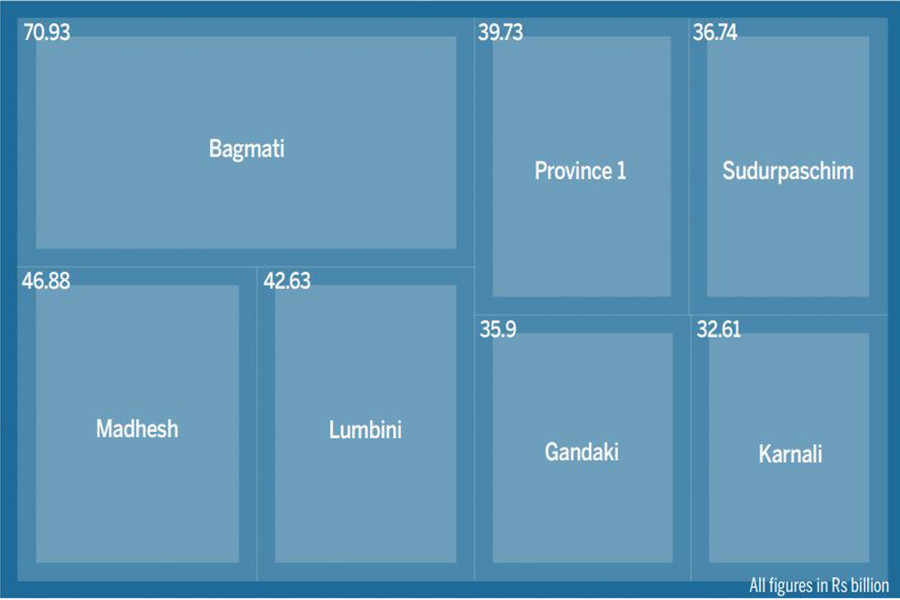Editorial
Spending money wisely
The budgets should have found regionally specific ways to keep the youth at home.
All seven provinces of Nepal on Wednesday presented their budgets for the next fiscal year 2022-23. In their last budget for the first term, the provinces look forward to an economic recovery, focusing on agricultural production and expansion of social safety net. Their combined budget of Rs305.46 billion is 17 percent higher than the current fiscal year's budget. Most of the provinces have made infrastructure development the mainstay of their road to economic recovery and growth. While infrastructure development is one of the most important aspects of the country's overall development, we have lately seen the malpractices of certain influential individuals leveraging to allocate budgets for projects based on whim and selfish interests rather than genuine necessity. Such projects come with immense environmental costs apart from turning into missed opportunities.
What is even more alarming is that some provinces continue to allocate budgets for the Constituency Infrastructure Development Special Programme, which is nothing more than a tool for leaders to continue leveraging their power by handing out breadcrumbs to individuals and localities loyal to them. Province 1, for instance, has allocated Rs900 million to the programme, a gross misuse of scarce funds at a time when the money could have been used to buttress the health care system throughout the province. Similarly, Madhes province has given continuity to the controversial Beti Padhao, Beti Bachao programme, under which it intends to provide cash to girl students to purchase bicycles. Having faced the music for alleged irregularities in the scheme in previous years, the province seems to have found an alternative way to dole out freebies. But it has failed to understand that giveaways have hardly ever empowered anyone.
Even the seemingly benevolent idea of handing out petty cash to the destitute is something that does precious little to get by, let alone lift them out of poverty. The focus, rather, should be on bringing structural changes that ensure that there is a safety net for all who are susceptible to multi-dimensional vulnerabilities. Citizens have not forgotten the insufferable pain brought about by a wretched public health system that failed them when they needed health care the most. The Covid-19 pandemic laid bare the huge crevices in our health care system. A systemic restructuring of the public health care system is necessary to bridge those gaps. However, in providing inadequate attention to healthcare, the provinces are acting as if we have already bounced back from the setback caused by the pandemic, but the reality is exactly the opposite.
The Covid-19 pandemic caused the homecoming of many desperate youth from labour destination countries as well as urban centres within the country. The hope was that the provinces would come up with innovative plans to ensure that the young people stay back and contribute to the resuscitation of the ailing economy by revitalising local economic activities. However, having seen no benefit in staying back, the youth are leaving the country in hordes each day. The budgets should have found regionally specific ways to keep them at home so that they could become the pillars of the country's road to recovery after the economic setback. Even then, the provinces have not failed to bring a regional flair in their allocations, with some focusing on mechanisation of farming while others focus on promoting electric vehicles while yet others emphasise ayurvedic medicine production. Notwithstanding their flaws and strengths, the budgets are only as good as they are implemented fully by the end of the fiscal year. This, only time will tell.




 9.89°C Kathmandu
9.89°C Kathmandu














